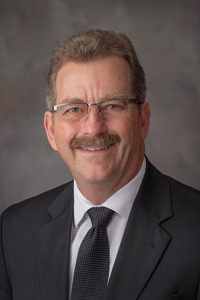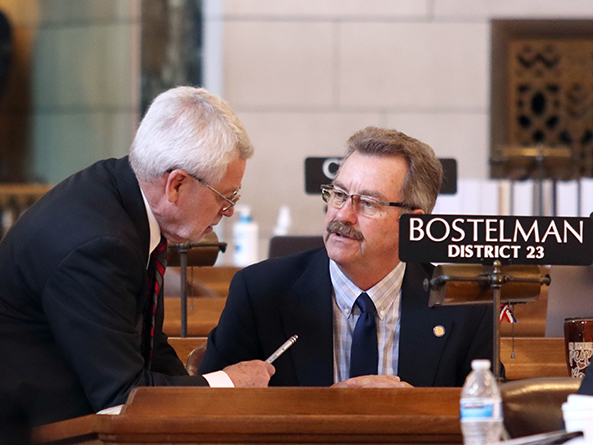Hydrogen hub funding proposal broadened, advanced
A bill that would fund Nebraska’s efforts to be selected as a regional clean hydrogen hub advanced to the final round of debate April 18 after lawmakers amended it to include the provisions of several other bills related to natural resources.

LB565, introduced by Sen. Bruce Bostelman of Brainard, states legislative intent to appropriate $500,000 over the next two fiscal years to the state Department of Economic Development for grants that would be used for engineering and modeling needed to submit a full application to the U.S. Department of Energy’s H2Hubs program.
Bostelman introduced an amendment on select file that added the provisions of five other bills heard by the committee this session.
The provisions of LB217, introduced by Seward Sen. Jana Hughes, would extend the sunset date for a scrap tire project grant program under the Waste Reduction and Recycling Incentive Act from 2024 to 2029.
The provisions of LB289, sponsored by Bostelman, would amend the Municipal Cooperative Financing Act to authorize municipal agencies to own and operate, contract to operate or lease advanced metering infrastructure technology and provide advanced metering infrastructure services to public utilities.
The measure also would authorize the agencies to provide certain services, including information technology and physical infrastructure management, to public utilities and municipal infrastructure systems.
Bostelman said the change would clarify that the Municipal Energy Agency of Nebraska could provide these services to its members.
The provisions of LB395, introduced by Sen. Steve Erdman of Bayard, would increase the maximum daily compensation for members of the Nebraska Oil and Gas Conservation Commission from $400 to $500 and adjust the amount for inflation every other year, beginning in 2025. The proposal also would repeal the current $4,000 annual cap on each member’s compensation.
Currently, farmers and ranchers may, without a permit from the state Game and Parks Commission, destroy any predator, including coyotes, preying on livestock or poultry or causing agricultural depredation on their land. A similar provision allows farmers and ranchers to kill a mountain lion that is in the process of stalking, killing or consuming livestock on their property.
Under the amended provisions of LB400, introduced by Gordon Sen. Tom Brewer, any private landowner or tenant could kill a mountain lion under those conditions or destroy a predator preying on livestock or poultry or suspected of causing other damage on their land.
The provisions of LB425, also introduced by Bostelman, would increase the number of state Game and Parks Commission members needed for a quorum at the commission’s public meetings from four to five.
Among other changes, the proposal also would increase caps on certain nonresident hunting and fishing permits and allow the commission to issue permits for the taking of elk from state game refuges when their number is deemed detrimental to habitat conditions on the refuges or to adjacent private property.
After voting 38-0 to adopt Bostelman’s amendment, senators advanced LB565 to final reading by voice vote.


